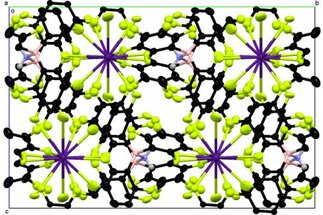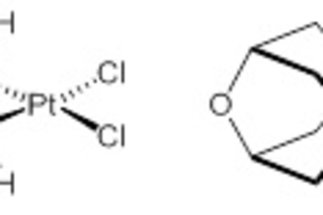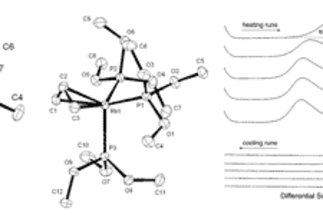Homogeneous Catalysis with Organometallic Compounds
Klaus-Richard Pörschke was Group Leader at the Max-Planck-Institut für Kohlenforschung until 2016. This web page documents the activities of his group.
Research areas are:
> coordination properties of metals and ligands
> metal complexes with small molecules (ethyne, H2, etc)
> structural dynamics of complexes
> reaction mechanisms and
> organometallic mesogenes (plastic crystals)
> metal complexes for cancer therapy
> Caesium-Chemistry.
Transition metals under focus are Ni, Pd, and Pt, which often are used in combination with main group metals compounds (Li, Mg, Al, Ge, Sn), and Co–Ir.
Research Topics:
The cesium cation, Cs+, is the largest and least electrophilic singly charged metal ion. Isolation of Cs+ salts from aqueous solutions represents a problem in many areas, as there are (a) exploitation of cesium from minerals, (b) reprocessing of nuclear fuels and separation of the strong gamma emitter 137Cs, (c) decontamination of 137Cs containing waste solutions, and (d) preparation of 131/137Cs radioactive probes for a variety of applications. We have found that the fluorinated aryl boronate (FAB)...
[more]
Among the most prominent anti-cancer drugs are cisplatin, carboplatin, and oxaliplatin. Therapy with these drugs is frequently associated with serious side-effects, and inherent or acquired platinum resistance is a major problem. Thus, there is an unabated need for remedy and probing new structures. We have studied parent bispidine...
[more]
While plastic crystals (dynamically-orientationally disordered mesogens) are so far rare in organometallic chemistry, we discovered that formally five-coordinate ionic Ni(II) complexes [(π-allyl)NiL3]Y and neutral M(I) complexes (π-allyl)ML3 (M = Co, Rh, Ir) with L = PMe3, P(OMe)3, and other ligands undergo a phase transition...
[more]
Research Reports:



